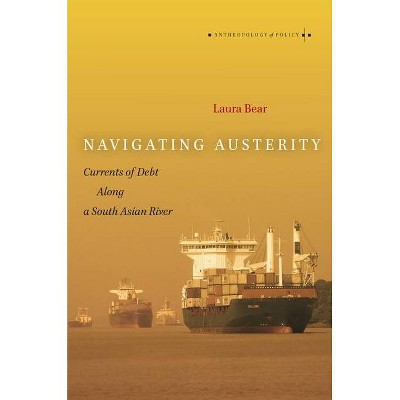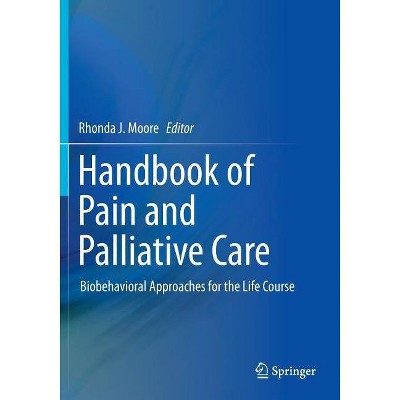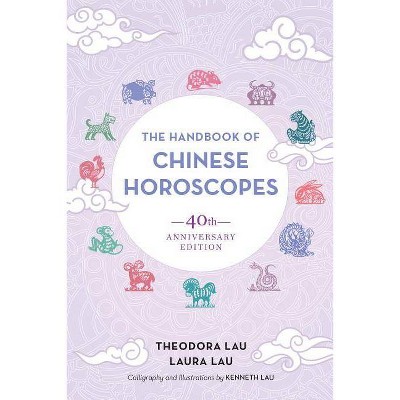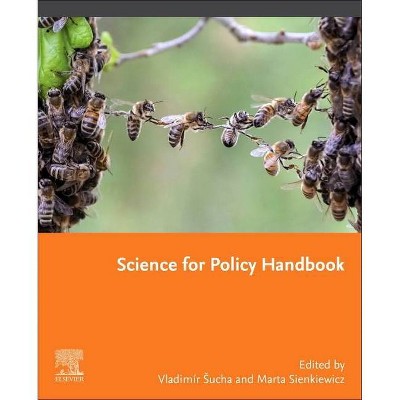The Happiness Policy Handbook - by Laura Musikanski & Rhonda Phillips & Jean Crowder (Paperback)
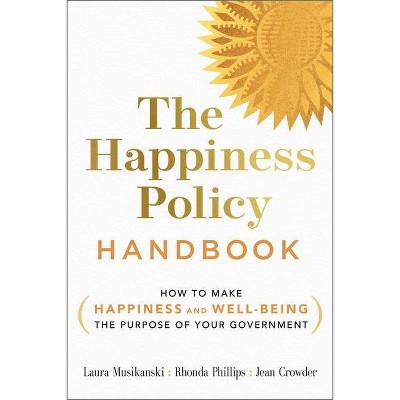
Similar Products
Products of same category from the store
AllProduct info
<p/><br></br><p><b> About the Book </b></p></br></br>The authors provide a concise background on happiness studies and science, coupled with practical tools for formulating and integrating happiness policy at all levels of government.<p/><br></br><p><b> Book Synopsis </b></p></br></br><p><strong>Build a better society through happiness policy</strong></p><p>Thomas Jefferson said that "the purpose of government is to enable the people of a nation to live in safety and happiness." Yet only now, 270 years later, is the happiness of citizens starting to be taken seriously as the purpose of government. </p><p>While happiness science is advancing rapidly, and governments and organizations are creating indices for measuring happiness, there is little practical information on how to create policy to advance happiness. </p><p>Drawing from a deep well of expertise and experience, <em>The Happiness Policy Handbook </em>is the first step-by-step guide for integrating happiness into government policy at all levels. Coverage includes: </p><ul> <li>A concise background on happiness science, indices and indicators, and happiness in public policy </li> <li>Tools for formulating happiness policy and integrating happiness into administrative functions </li> <li>A concept menu of happiness policies </li> <li>Communicating happiness policy objectives to media and engaging with the community </li> <li>A happiness policy screening tool for evaluating the happiness contribution of any policy </li> <li>Policy perspectives from seasoned experts across sectors. </li></ul><p><em>The Happiness Policy Handbook </em>is the essential resource for policymakers and professionals working to integrate happiness and well-being into governmental processes and institutions. </p><p/><br></br><p><b> From the Back Cover </b></p></br></br>Build a better society through happiness policy<p> <i>Offers powerful reasons for getting involved with happiness science and making happiness--instead of GDP growth--the goal of government</i><br><b>-- JOHN DE GRAAF, co-author, <i>Affluenza </i>and co-founder, The Happiness Alliance</b></p><p> <i>If we want the world to embrace sustainability, happiness and sustainability have to become two sides of the same coin. I recommend this book as a guide to how this might be done.</i><br><b>-- JOHN ELKINGTON, author, <i>The Breakthrough Challenge</i></b></p><p> THOMAS JEFFERSON SAID that the purpose of government is to enable the people of a nation to live in safety and happiness. Yet only now, 240 years later, is the happiness of people starting to be taken seriously as the purpose of government.</p><p> While happiness science is developing rapidly, and governments and organizations are creating indices for measuring happiness, there is little practical information on how to create policy to advance happiness.</p><p> Drawing from a deep well of expertise and experience, <i>The Happiness Policy Handbook</i> is the first step-by-step guide for integrating happiness into government policy at all levels.<br> Coverage includes: </p><ul><li>A background on happiness science, indices and indicators, and happiness in public policy</li><li>Formulating happiness policy and integrating happiness into administrative functions</li><li>A concept menu of happiness policies</li><li>Communicating happiness policy objectives to media and engaging with the community</li><li>A happiness policy screening tool for evaluating the happiness contribution of any policy</li><li>Policy perspectives from seasoned experts across sectors.</li></ul><p><i>The Happiness Policy Handbook </i>is the essential resource for policymakers and professionals working to integrate happiness and well-being into governmental processes and institutions.</p><p> <i>Shows governments how and why to apply happiness criteria to its processes. Hoorah to Musikanski, Phillips, and Crowder for showing us the way!</i><br><b>-- BOB WILLARD, author, <i>The New Sustainability Advantage</i></b></p><p><i> Handy for development experts, project managers, legislators, policy makers, and community and corporate leaders.</i><br><b>-- DASHO KARMA URA, President, The Centre for Bhutan Studies and GNH Research</b></p><p><b>LAURA MUSIKANSKI</b> is Executive Director of the Happiness Alliance and lives in Seattle, WA. <b>RHONDA PHILLIPS </b>is the Dean of Purdue University Honors College and a community development specialist. She lives in West Lafayette, IN. <b>JEAN CROWDER</b> was a member of parliament in the Canadian government, has extensive policymaking experience, and lives in Duncan, BC.</p><p/><br></br><p><b> About the Author </b></p></br></br><p><strong>Laura Musikanski </strong>is Executive Director of the Happiness Alliance, the first nonprofit in the world providing resources, knowledge, and tools -- including the Happiness Index -- for integrating happiness into governments and institutions. She is author of <em>Sustainability Decoded </em>and <em>How to Account for Sustainability</em>. She lives in Seattle, WA. </p><p><strong>Rhonda Phillips </strong>has conducted hands-on research with policy makers, community organizers, and in academia for over 30 years, and is the author or editor of 25 books. She is the Dean of Purdue Honors College and past president of the International Quality-of-Life Studies. She lives in West Lafayette, IN. </p><p><strong>Jean Crowder</strong> served as a member of parliament (MP) in the Canadian government between 2004-2015, and has extensive experience as a policymaker. She worked for Human Resources Development Canada, the British Columbia Ministry of Skills Training and Labour, and was a human resources consultant and manager at Malaspina University College. Crowder is a Happiness Alliance board member and lives in Duncan, BC. </p>
Price History
Price Archive shows prices from various stores, lets you see history and find the cheapest. There is no actual sale on the website. For all support, inquiry and suggestion messagescommunication@pricearchive.us

